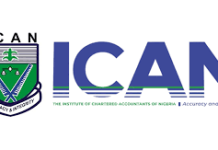In the official window, the naira, the native currency of Nigeria, managed to recoup a meager gain of almost 2%, but the demand for US dollars slowed down ahead of Workers Day celebrations.
The FMDQ Securities Exchange platform provided information indicating that the Naira appreciated by 1.98% vs the US dollar, with the spot rate ending at ₦1,390.96. After leading the global currency performance in April, the local currency has been under pressure.
Due to recent FX adjustments in the market, the naira outperformed all other African currencies. In addition to increasing market confidence, the apex bank reform brought in foreign exchange inflows.
However, the official and informal markets’ lack of FX liquidity made the impetus fleeting. Over a week, the shock resulted in a reversal of FX gains, while the monetary authority watch helplessly.
In the parallel market, the US dollar was sold at ₦1,340, clawing back previous losses. Nigeria’s gross external reserves climbed further this week, closing the month of April at $32.232 billion.
Foreign exchange reserves switched higher after the Central Bank of Nigeria (CBN) denied using part of the amount in the account to defend the local currency.
The nation’s external reserves made uptrend despite bearish trade condition in the global commodity market on the back of ceasefire hope between Israel and Hamas.
Oil prices experienced a decline, with the Brent crude falling by 1.94% to trade at $85.51 per barrel, and the West Texas Intermediate (WTI) crude oil also decreasing by 2.00% to trade at $81.07 per barrel.













